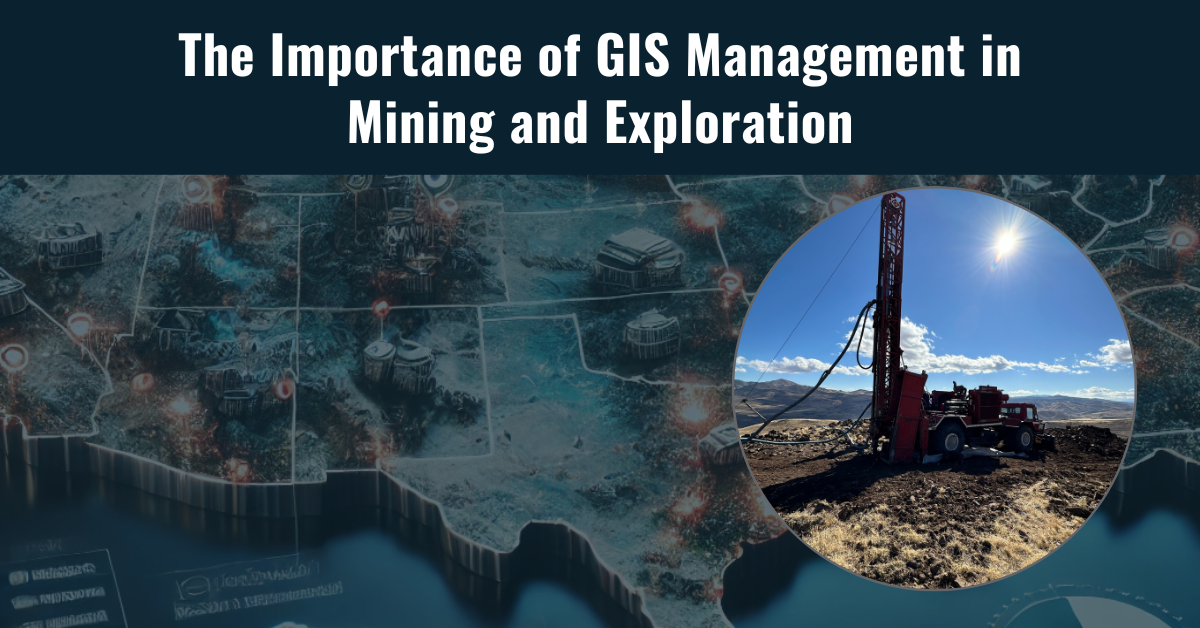In the world of mining and exploration, effective GIS management is crucial for maintaining accurate, reliable, and up-to-date data. A poorly managed GIS dataset isn’t just an inconvenience—it can have far-reaching consequences for project planning, regulatory compliance, and operational efficiency. Here’s why robust GIS management is essential:
The Consequences of Poor GIS Management
1. Inaccurate Analysis and Decision-Making
Poorly managed GIS data can lead to incorrect analysis, making it difficult to base decisions on reliable information. Overlapping or inconsistent data points, unclear boundaries, and excess layers can obscure insights, leading to flawed conclusions and suboptimal decisions.
2. Project Planning Inefficiencies
Disorganized GIS data complicates project planning, requiring more time and effort to clean up and verify. This inefficiency can delay timelines, increase costs, and reduce the agility of your project team.
3. Legal and Compliance Risks
Accurate GIS data is essential for regulatory compliance and legal requirements. Poor GIS management can result in mistakes in reporting and compliance checks, potentially leading to fines or legal challenges.
4. Communication Challenges with Stakeholders
Effective communication relies on clear and accurate data. Disorganized GIS data can lead to misunderstandings, confusion, and reduced confidence in the project’s integrity when presented to stakeholders.
5. Risk of Inaccurate Land Acquisitions
Poor GIS management can lead to inaccuracies in land acquisitions. Disorganized datasets may overlook critical gaps or fractions of land within claim packages, opening the project to risks like disputes or loss of valuable land.
The Benefits of Strong GIS Management
1. Improved Data Accuracy and Insights
Clean and well-managed GIS data provides accurate insights, enabling reliable analysis and decision-making. Consistent labeling and organized data points make it easier to identify trends and make strategic decisions.
2. Increased Efficiency in Project Planning
Good GIS management streamlines the planning process, saving time and effort. With clean and organized data, project plans can be executed more smoothly and effectively, reducing downtime.
3. Reduced Compliance Risk
Well-maintained GIS data helps ensure compliance with regulatory requirements, reducing the risk of legal issues. Accurate, current data supports precise reporting and documentation for all compliance standards.
4. Enhanced Communication with Stakeholders
Clear, well-organized GIS data facilitates effective communication, helping to build trust and confidence with stakeholders. With a well-managed dataset, presenting information to project investors and partners becomes easier and more impactful.
5. Avoiding Land Acquisition Risks
Proper GIS management helps avoid potential issues in land acquisition. By identifying and correcting data gaps, projects can ensure that all valuable land is properly accounted for, avoiding disputes and maximizing land value.
Why You Don’t Need a Full-Time GIS Manager
Hiring a full-time GIS manager isn’t necessary to maintain clean, accurate data. Our specialized GIS services ensure that your datasets are expertly managed, up-to-date, and optimized for your project’s needs. Our team offers reliable GIS management solutions, so you can focus on what you do best—advancing your mining and exploration goals.
Why Choose Our GIS Management Services?
- Industry Expertise: Our GIS professionals are highly experienced in mining and exploration.
- Efficiency: We handle GIS data cleanup and organization, so you don’t have to.
- Tailored Solutions: We provide customized GIS management that aligns with your specific project goals.
Proper GIS management is essential for avoiding risks and making data-driven decisions. Let our team manage your GIS data so you can concentrate on planning, exploration, and achieving project success.

